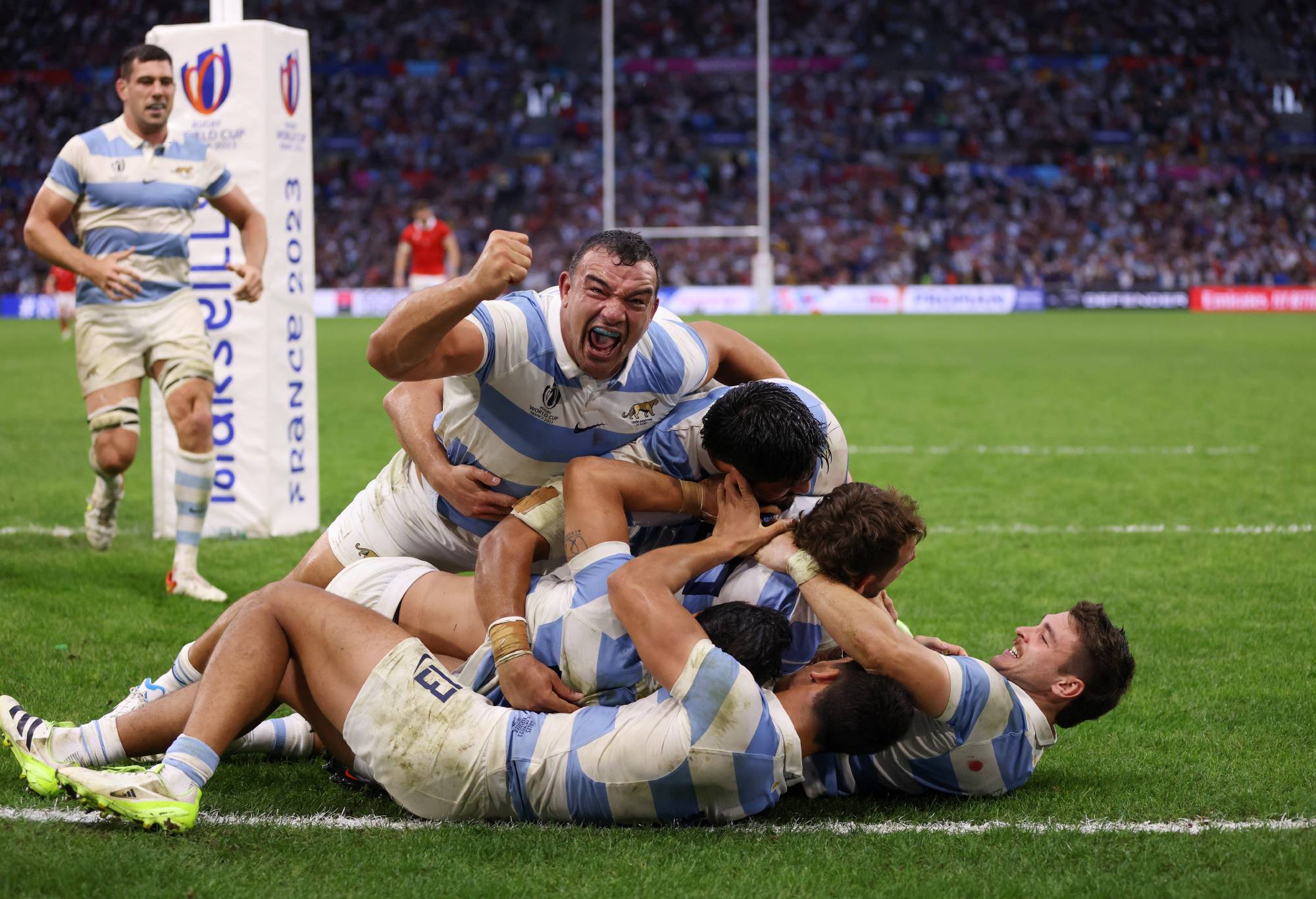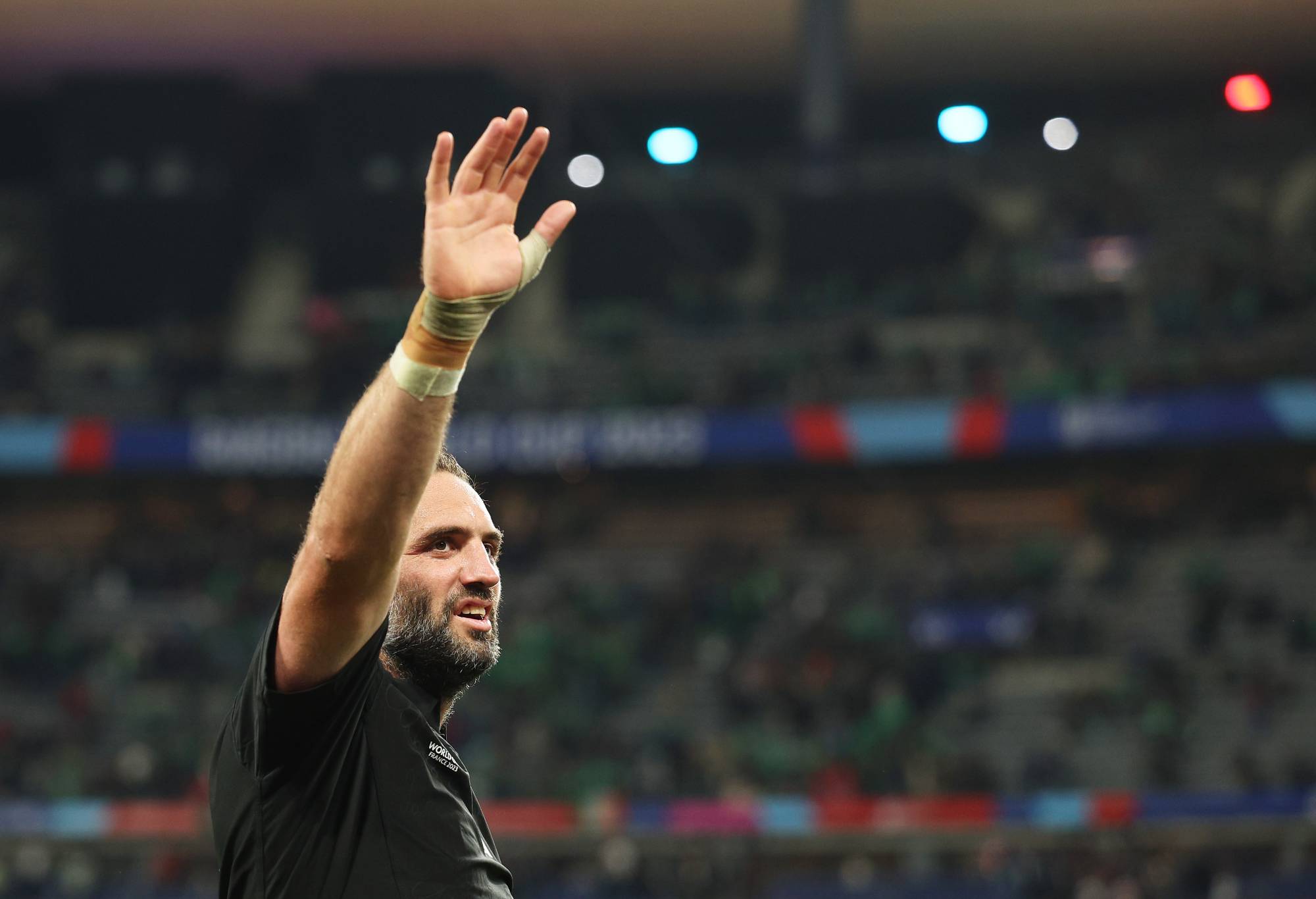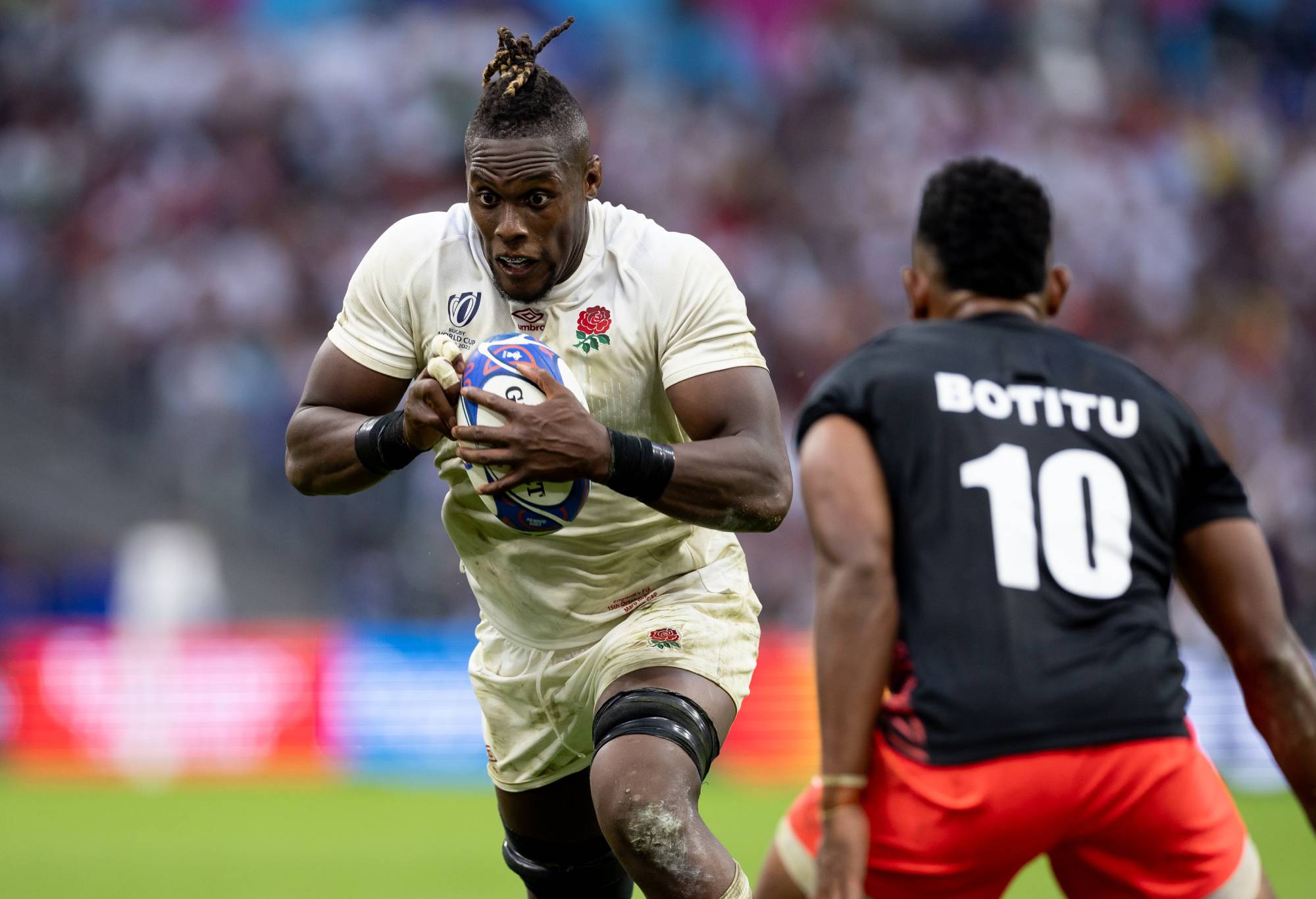The Wrap: Rebels young gun rockets out of Wallabies contention, and why Samipeni Finau's 'brutal' hit on Edmed was fair game
Sometimes it’s best to start at the finish. The Waratahs winning the Super W final 50-14 against the Drua was the cap to a…
The RWC23 quarterfinals celebrated the might of veterans.
The weekend’s results underscored a crucial lesson: winning a World Cup means knowing how to not lose one.
While Eddie Jones has consistently championed a youthful, exciting ‘smash-and-grab’ strategy, it was the seasoned players who dominated the first round of knockouts.
Wales’ exciting young backs Louis Rees-Zammit and Sam Costelow were taught a lesson on knock-out rugby margins by Argentina. Wales, having controlled most of the game, found themselves falling behind the longer the match went on.
Down by two in the 74th minute, LRZ, their mercurial 22-year-old, saw the chance to add to his five world cup tries and put Wales back in front. But the opportunity slammed shut as he was smashed into touch by 32-year-old Matias Moroni, whose early defensive read made the 30cm difference between Wales retaking the lead or not. This old bull, young buck matchup swung the momentum towards Argentina and 34-year-old Nicholas Sanchez finished the job.

Nicolas Sanchez of Argentina celebrates with teammates after scoring against Wales. (Photo by Paul Harding/Getty Images)
Three minutes later, margin still two and Wales once again on the attack, 22-year-old Sam Costelow coming on late to steer Wales home in what will be his predecessor Dan Biggar’s last match. Costelow ran the same savvy move that Wales have produced all tournament, but lacked the finer details.
He turned his body early and didn’t come at the defensive line hard enough. He has four months to figure out what he did wrong, but it won’t change the fact that Sanchez knew what was coming and had seen the intercept before it left Costelow’s hands. Argentina’s most capped back of all time still had the 45-metre sprint in him to put Argentina through. Wales gambled a World Cup semi-final on Costelow’s eight caps, but Sanchez’ 102 caps won.
Hours later, New Zealand delivered their strongest performance since 2015, toppling the seemingly unstoppable Ireland through sheer defensive willpower, despite only making six 22-metre entries to Ireland’s 15.
This 22-metre entry deficit was the worst of any victor at this World Cup, but it epitomised how a mature All Blacks team wasted no opportunities. New Zealand’s defence was ferocious at the breakdown and impressively, steadfast against Ireland’s passing interplay.
The effect was slow Irish ball creating beautiful but ineffective ball movement. Add in a 60-metre first phase set piece try with only two passes to steal seven points and you have the recipe for an Irish nightmare. Yet, Ireland still had an opportunity (and 37 phases) to win the match. Once again, the most-capped All Black of all time, Sam Whitelock, seized his opportunity.

New Zealand’s Sam Whitelock waves to the crowd after the All Backs beat Ireland in the World Cup quarter-final. (Photo by Warren Little/Getty Images)
His opposite man was 22-year-old Joe McCarthy. With just seven tests to his name, he fell victim to Whitelock’s 151-match experience. Whitelock clamps on the ball. Ireland will spend four more years wondering what a semi-final is like.
Fiji and England’s battle was the starkest reflection of the value of experience, not just for players, but officials. In a match where England’s methodical, forward-based plan was contrasted with Fiji’s frenetic attacking game, the breakdown was always going to be difficult to officiate.
Mathieu Raynal, however, did a particularly poor job of maintaining consistency in his decision-making. This allowed the veteran English players to exploit the grey zone, hampering Fiji’s momentum.

England’s Maro Itoje runs the ball against Fiji. (Photo by Gaspafotos/MB Media/Getty Images)
In the second-half breakdown morass as Fiji had a chance to win the match, 34-year-old Courtney Lawes stepped up. Meli Derenalagi in just his fifth match was isolated. Not enough to be punished in a club rugby game or even during most of this test match, but Lawes spots it, gets over the ball, and the match is over.
Between Derenalagi, Raynal and Lawes, Lawes was the only one with World Cup knockout experience, and with this he is the one who wins.
Finally, France vs South Africa in the cauldron of Stade De France, the stakes got higher, margin for error got smaller and the team that had felt it before won. Knocking the home nation out of their World Cup in a quarterfinal is hard. But, if you’ve done it twice before, as Eben Etzebeth and Handre Pollard have, it is a little bit less daunting. 2015 Wales in Cardiff, 2019 Japan in Tokyo, and now 2023 France in Paris is their World Cup record.
In the 66th minute, trailing by six, Etzebeth targeted world cup first-timer Mattieu Jalibert, whose high tackle converted a carry into a 6-metre demolition and a try. That is what experience gets you. The composure to have your most physical player with his eyes up scanning for the best opportunity. It gives you confidence, from 53 metres away that Handre Pollard will take the lead. Experience means that Faf De Klerk can know when to strip the ball from an overextended prop and win the game.
The quarterfinals this weekend were a tribute to the experienced. Sanchez, Whitelock, Lawes and Pollard have played in 15 world cup tournaments between them which manifested in the biggest moments of the weekend. Regardless of the sugar-rush that can be bought with young, exciting players, in the most pressure filled matches, the teams that succeed are those that have done it before.